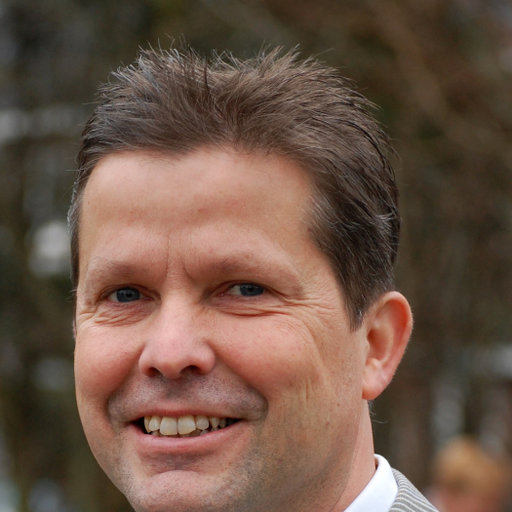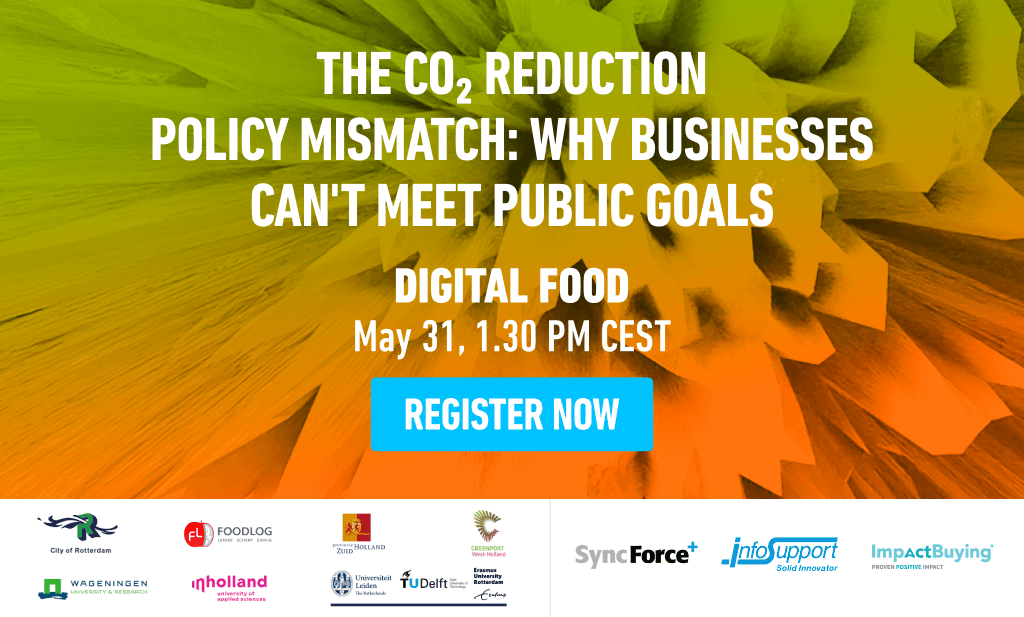Join us on Tuesday, May 31, from 1:30 PM till 2:15 PM (CET) + 45 more minutes of informality (if you care to stay on) for the third use case in our Digital Food series. Registration is no longer possible.
CO2 emission reduction goals now have a legal status. The Paris agreement and the Green Deal will force especially European based companies to assure they live up to national and EU policy standards.
Due Diligence will require individual businesses to comply with national sustainability goals.
However, EU and national goals aren’t necessarily the sum of individual companies’ goals. Unless the government assigns individual targets to companies, the sum total production of companies that operate in full compliance with standards can derail national goals.
Even the lowest carbon milk (as counted per cow), for example, won’t automatically comply with national carbon emission goals, as a farmer or dairy processing company can’t take national goals for total emissions into account in the way they manage their business. So, in the case that overarching public goals focus on general standards and targets only, the twain between public and private interest shall never meet.
Nevertheless, Due Diligence rules will require individual businesses to comply with national sustainability goals. Friends of the Earth has already taken Shell to court in order to force the energy company to comply with the Paris Agreement. The NGO is now preparing 29 new cases, including Ahold Delhaize, Unilever, Vion and FrieslandCampina.
In this extremely relevant edition of our Digital Food Series, Dr Hans Blonk will explain the mismatch between public and business policy and share his ideas on how modelling and digitization can help narrow the gap and mitigate the conflicts lurking just around the corner. He will do so from his extensive experience in working with public policy makers and businesses. Registration is no longer possible.

Dr Hans Blonk is the founder of Blonk (established in 1999). He is a biologist graduated from Leiden University and was one of the developers of the first LCA methodology in the Netherlands. Over the years he has made important contributions to the development of LCA and Carbon Footprinting methods for agri-food products.
Blonk is a leading international expert in food system sustainability. Its modellers and consultants support organizations to understand their environmental impact in the agri-food value chain by offering advice and developing tailored software tools based on the latest scientific developments and data.
Due Diligence will require individual businesses to comply with national sustainability goals.
However, EU and national goals aren’t necessarily the sum of individual companies’ goals. Unless the government assigns individual targets to companies, the sum total production of companies that operate in full compliance with standards can derail national goals.
Even the lowest carbon milk (as counted per cow), for example, won’t automatically comply with national carbon emission goals, as a farmer or dairy processing company can’t take national goals for total emissions into account in the way they manage their business. So, in the case that overarching public goals focus on general standards and targets only, the twain between public and private interest shall never meet.
Nevertheless, Due Diligence rules will require individual businesses to comply with national sustainability goals. Friends of the Earth has already taken Shell to court in order to force the energy company to comply with the Paris Agreement. The NGO is now preparing 29 new cases, including Ahold Delhaize, Unilever, Vion and FrieslandCampina.
In this extremely relevant edition of our Digital Food Series, Dr Hans Blonk will explain the mismatch between public and business policy and share his ideas on how modelling and digitization can help narrow the gap and mitigate the conflicts lurking just around the corner. He will do so from his extensive experience in working with public policy makers and businesses. Registration is no longer possible.

Dr Hans Blonk is the founder of Blonk (established in 1999). He is a biologist graduated from Leiden University and was one of the developers of the first LCA methodology in the Netherlands. Over the years he has made important contributions to the development of LCA and Carbon Footprinting methods for agri-food products.
Blonk is a leading international expert in food system sustainability. Its modellers and consultants support organizations to understand their environmental impact in the agri-food value chain by offering advice and developing tailored software tools based on the latest scientific developments and data.
Related



